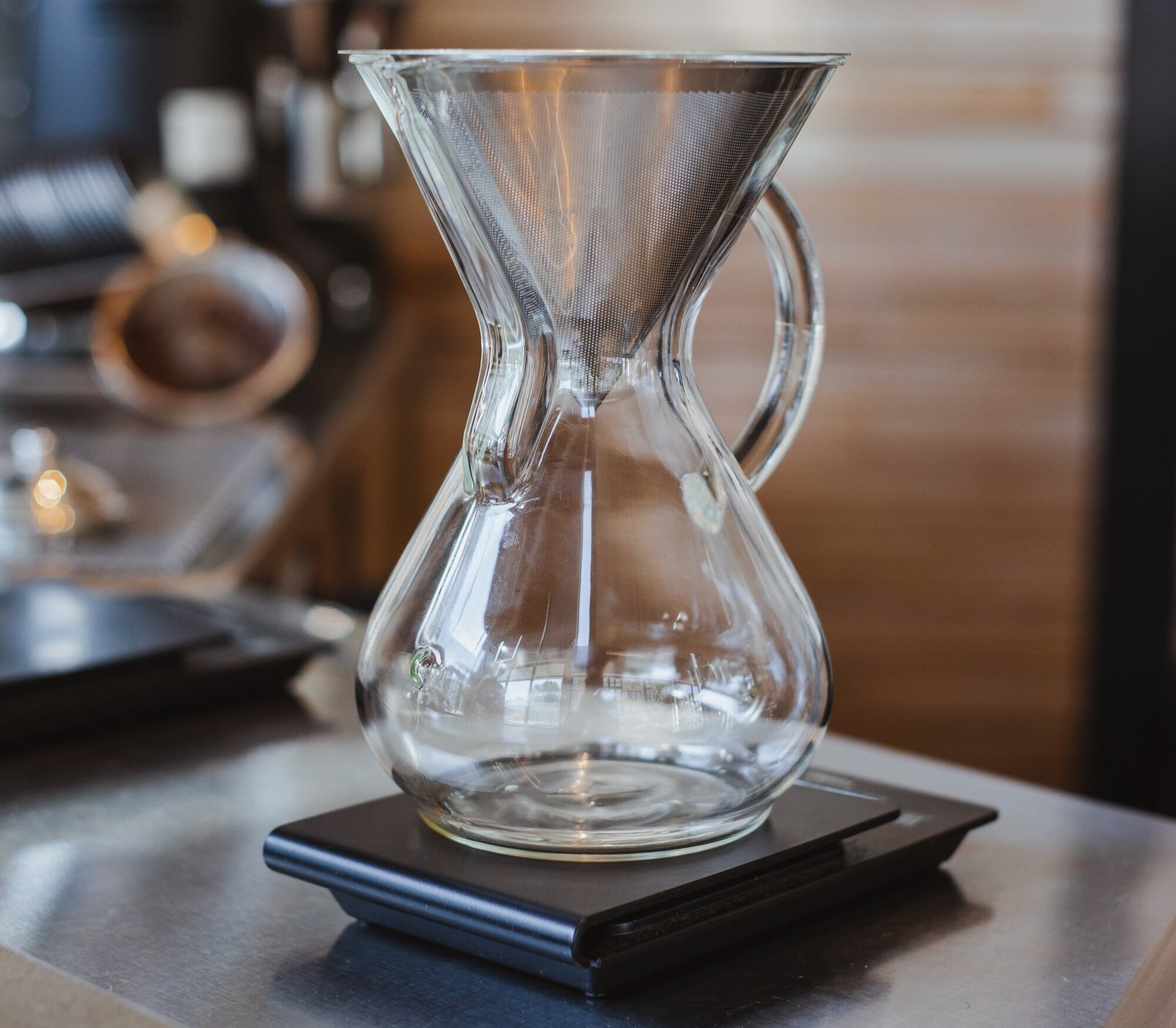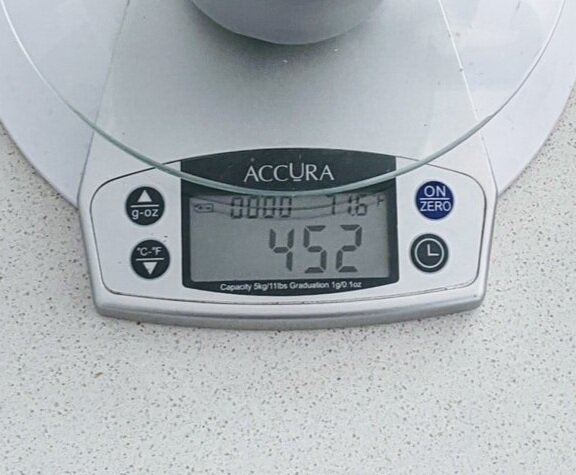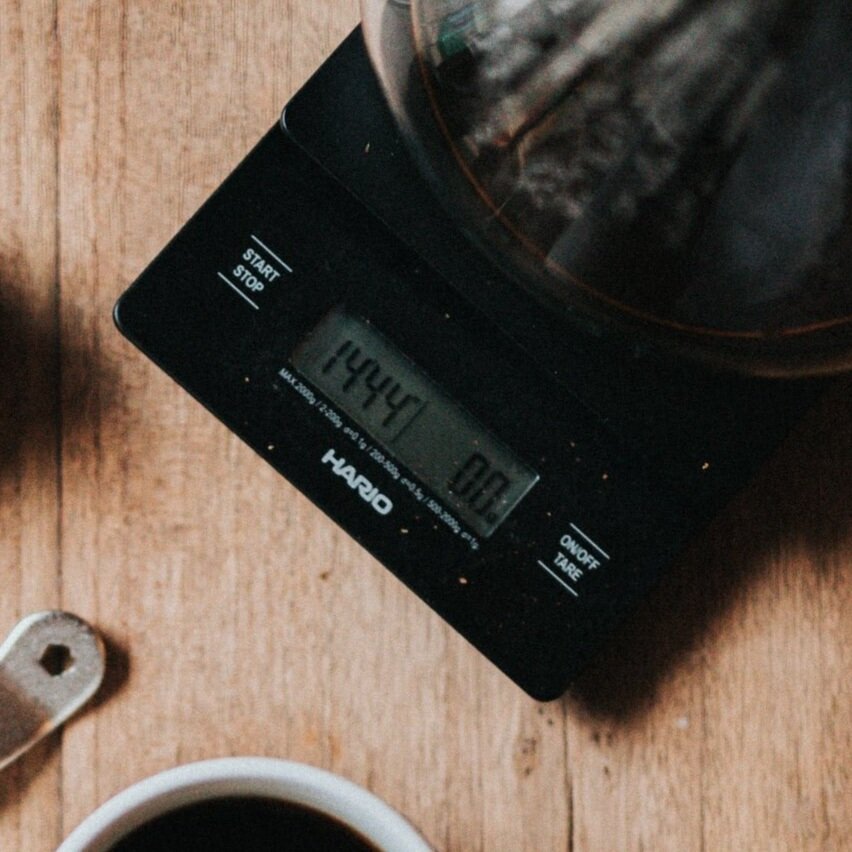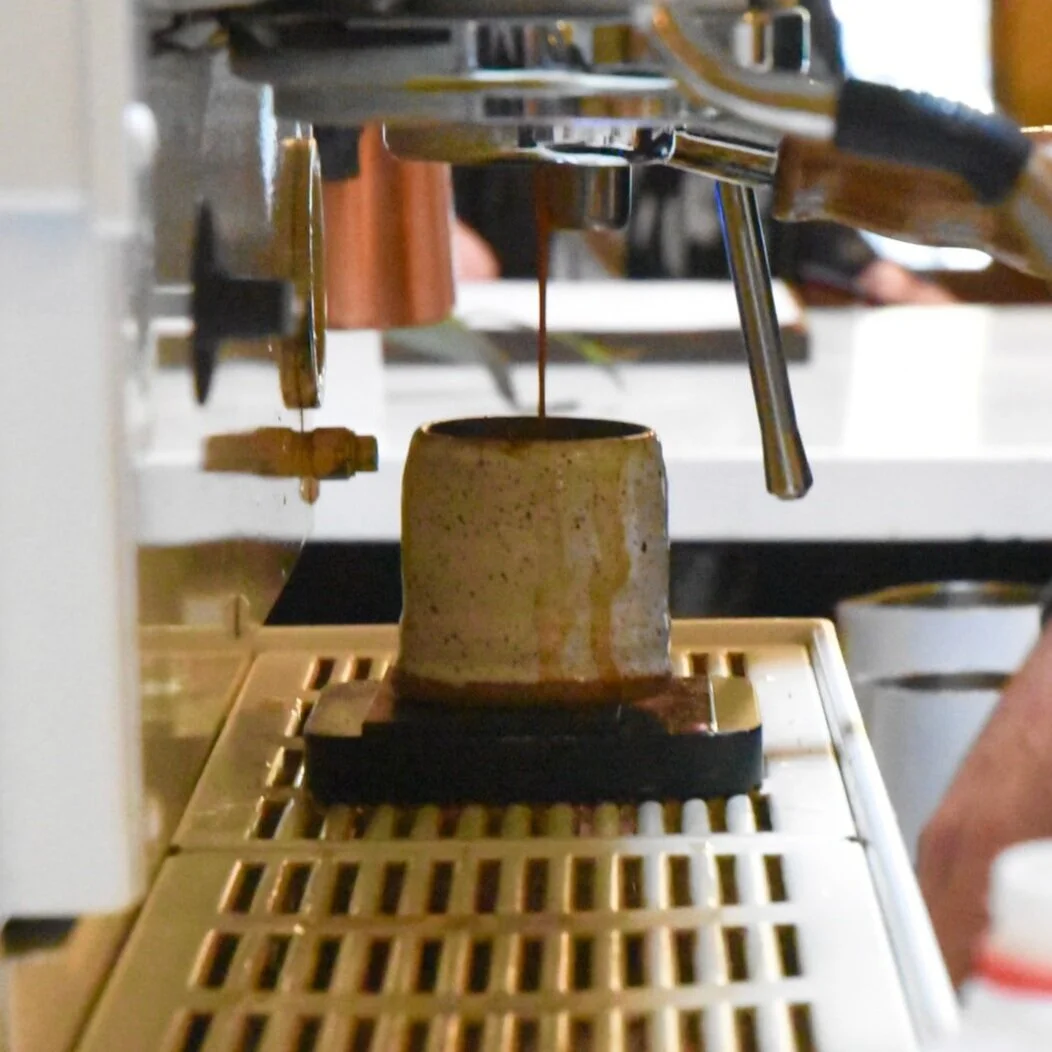Why you need coffee scales to make your coffee better: Complete Guide
In the world of coffee brewing, precision is key to achieving the perfect cup. Many coffee enthusiasts and professionals alike swear by using scales as an essential tool in their brewing process.
Using a pair of scales when brewing coffee is a key part of the coffee brewing process, no matter what method you use. Whether you have an espresso machine, V60 dripper, Moka pot or even a French Press, using a coffee weighing scale is great way to improve the consistency and accuracy of your brew.
In this blog post, we'll delve into the reasons why using scales when making coffee can significantly elevate your coffee game and lead to consistently delicious results.
Why use a coffee scale?
Consistency in Brewing Ratios: One of the primary reasons to use scales when making coffee is to maintain consistent brewing ratios. Coffee brewing is all about the right balance of coffee grounds to water, known as the brew ratio. By accurately weighing your coffee grounds and water, you can ensure that you're using the same ratio every time you brew, leading to consistent flavour profiles in your coffee.
Precision in Measuring: Eyeballing coffee measurements can lead to inconsistencies in the brewing process. Different coffee beans can have varying densities, meaning a tablespoon of one coffee may not weigh the same as a tablespoon of another. Using scales allows you to measure your coffee and water precisely, taking the guesswork out of the equation.
Optimal Extraction: Proper extraction is crucial for extracting the flavours and aromas locked within coffee beans. Over-extraction or under-extraction can result in bitter or sour-tasting coffee, respectively. By using scales to measure your coffee grounds, you can dial in the right amount for your chosen brewing method, ensuring optimal extraction and a balanced cup of coffee.
Adjustability and Experimentation: Brewing coffee is also about fine-tuning the process to suit your taste preferences. When you use scales, you have the flexibility to adjust your brew ratio and experiment with different brewing parameters such as grind size, water temperature, and brewing time. This level of control allows you to refine your brewing technique and discover new flavours in your coffee.
Professional Barista Standards: In the world of specialty coffee and professional barista competitions, precision is paramount. Baristas use scales not only to maintain consistency but also to meet the exacting standards of coffee quality. Adopting similar practices at home can help you achieve cafe-quality coffee and expand your appreciation for the craft.
Reduced Waste: Using scales helps reduce coffee waste by ensuring you only use the necessary amount of coffee grounds and water for each brew. Wasting coffee not only impacts your budget but also the environment, making precise measurements a sustainable practice in coffee brewing.
Enhanced Brewing Experience: While some may see using scales as an extra step, many coffee enthusiasts find that it enhances their brewing experience. It encourages mindfulness and attention to detail, turning coffee brewing into a ritualistic and enjoyable process rather than a mundane task.
What to look for when buying coffee scales?
When it comes to buying coffee scales, there are several key features and considerations to keep in mind to ensure you get the most suitable scale for your brewing needs. Here are some features to look for when purchasing coffee scales:
0.1 Gram Increments
The primary purpose of coffee scales is to provide accurate and precise measurements of coffee grounds and water. Look for scales that offer measurements in grams, as this unit provides the most precise measurements commonly used in coffee brewing. Most kitchen scales only measure in 1g increments, however when making coffee you will want a smaller increment of 0.1g for greater accuracy. This helps your get more precise input and outputs from your brew recipe.
2. Built In Timer
Next, it's important to make sure the scales have a built in timer to measure your brew time.
You could use a separate timer such as your phone, but it'll be much easier if the scales already have one built in. Some scales even automatically start timing as your brew begins which is a handy feature.
3. Size
Another consideration is the scale size. Bear in mind your brewing method and make sure you purchase a scale that will fit underneath your equipment.
When making espresso you will probably need a smaller sized scale which will fit between the drip tray and portafilter.
The platform size of the scale should be large enough to hold your brewing equipment comfortably. Opt for scales with flat and stable platforms to ensure stability during measurements.
4. Response Time
A quick response time is important for instant readings when adding coffee grounds or water to the scale. Look for scales with fast response times to streamline your brewing process and make adjustments promptly.
5. Durability and Water Resistance
Since coffee brewing involves water and occasional spills, opt for scales that are durable and water-resistant. Look for scales with sealed buttons and a waterproof surface to withstand coffee drips and splashes without compromising performance.
4. App Connectivity
Some scales (such as the Falicita Arc) come with Bluetooth connectivity so you can connect to a smartphone app. This lets you measure coffee parameters such as curves and lets you save various measurements.
This feature is less essential but is nice to have if you want to take your brewing to the next level.
By considering these key features, you can select a coffee scale that meets your brewing requirements, enhances precision and consistency, and adds convenience to your coffee brewing routine.
Will kitchen scales do the same job as coffee scales?
Using a kitchen scale will do basic job when brewing coffee but if you want to yield better results and have more control over your recipe, then there is no comparison to a coffee specific scale.
As mentioned above, most kitchen scales only measure in 1g increments, yet when making coffee you ideally want to measure in 0.1g increments for greater accuracy.
In addition to this, kitchen scales can often be larger and bulker, making it difficult to use with your equipment. They also won't come with useful features such as a built in timer, a non-slip base and app connectivity.
For greater brewing accuracy, better quality and consistent results, it's always best to use a scale designed specifically for coffee making.
Which coffee scales should you buy? Here’s what we recommend
For a great value all-rounder we recommend the AMIR Digital Scales (view on Amazon)
For pour over/drip coffee we recommend the Hario V60 Coffee Scales (view on Amazon)
For Espresso we recommend the Timecore Coffee Scales (view on Amazon)
For Bluetooth capability we recommend the Acaia Pearl (view on Amazon)
Summary
In conclusion, using scales when making coffee offers numerous benefits, including consistency in brewing ratios, precision in measuring, optimal extraction, adjustability for experimentation, adherence to professional standards, reduced waste, and an enhanced brewing experience. Whether you're a casual coffee drinker or a passionate coffee aficionado, investing in a reliable digital scale can make a significant difference in the quality of your brewed coffee and elevate your coffee brewing skills to new heights.







